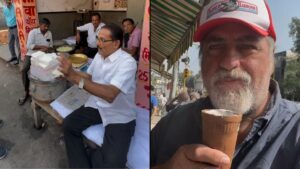Hong Kong police reveal alleged plot to bomb train stations and courts

Steve Li, the senior superintendent of the police’s National Security Department, said Tuesday nine people between the ages of 15 and 29 had been arrested, including six high school students, a high school employee and a university staff member.
“(The) plans are shocking because it seems to target a lot of people,” Li said. The alleged plot aimed to “maximize damage to society,” he added.
The suspects had rented a hotel room in Tsim Sha Tsui, a popular shopping district known for its sweeping views of Hong Kong Island and Victoria Harbour, to build explosives, Li said.
The room had been rented since early June, but the lab had only been “recently” set up, he said. The suspects had the tools and materials to make triacetone triperoxide (TATP), police said. TATP is a powerful high explosive that was used in terrorist atrocities like the 2015 Paris bombings and Brussels attacks in 2016.
Officers said they found an “operation manual” which allegedly contained plans for an attack in early July. Police said the main source of the group’s financial resources was among those arrested.
Authorities said they found about $10,300 in local currency and $1,300 worth of foreign currency, and froze about $77,200 in at least one bank account tied to the suspects.
The suspects had allegedly scouted two court buildings and were targeting some of the three tunnels that connect Hong Kong Island to the Kowloon Peninsula, some of the city’s most important transport infrastructure.
Speaking at her weekly news conference ahead of the announcement by the police, Hong Kong Chief Executive Carrie Lam warned of “underground hidden terrorist activities” and urged the public “to join hands to say no to violence.”
“We should not find any excuses for attackers. Violence is violence,” she said.
The alleged plot was investigated by the Hong Kong Police Department’s National Security Division, which is also probing an incident last week in which a man stabbed a police officer from behind before dying by suicide.
The legislation was meant to bring an end to the type of political unrest that rocked the city in 2019, a movement that began in opposition to a bill that would have allowed extradition to mainland China but morphed into a grassroots, occasionally violent campaign for universal suffrage and independent inquiries into alleged police misconduct.
The law criminalizes acts of secession, subversion, terrorism and collusion with foreign forces to endanger national security — with a maximum sentence of life imprisonment for all four offenses.
Last month, 500 police officers raided the newsroom of pro-democracy tabloid Apple Daily, seizing journalists’ materials and arresting the paper’s directors. National security police then froze the company’s assets, and less than a week later, the newspaper announced it would shut down and cease all digital operations due to the untenable environment. A former journalist at the paper tried to leave Hong Kong on June 27, only to be arrested at the airport under the national security law.
CNN’s Jessie Yeung contributed to this report.






